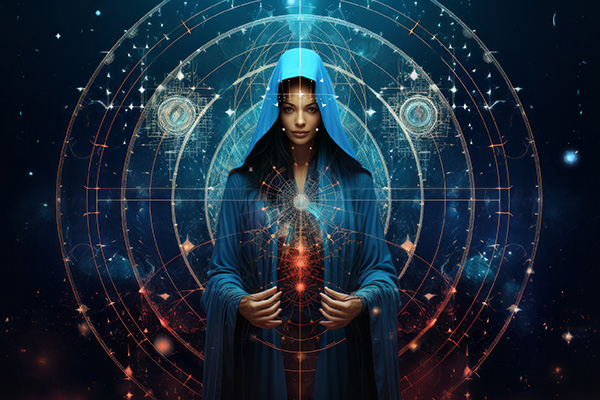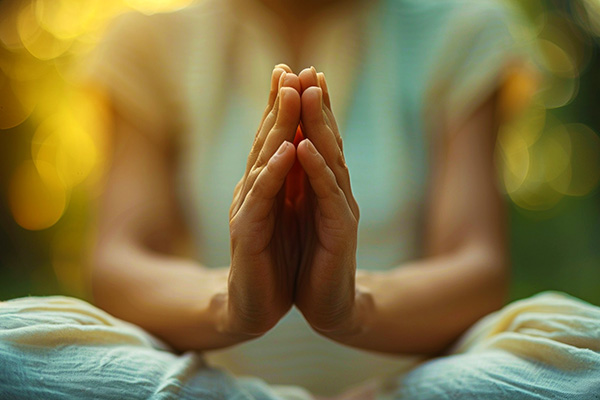victim mentality
Love Bombing: When Romance Has Ulterior Motives
 A client recently called me for a reading about a handsome, incredibly charming man she had met online. She was positively glowing as she described him. He works on an oil rig, she said, with a highly lucrative income and promising career advancement.
A client recently called me for a reading about a handsome, incredibly charming man she had met online. She was positively glowing as she described him. He works on an oil rig, she said, with a highly lucrative income and promising career advancement.
But what really lit her up was his love for her.
“He’s crazy about me!” she beamed.
She explained that they have long, dreamy conversations every day about the life they planned to build together. He told her she was everything he had been searching for, and promised her a future filled with abundance and romance once they finally meet in person.
In the meantime, he sends her cards and flowers, floods her inbox with love notes, and makes her feel worshipped and adored.
But the moment I started the reading, the message that came through was crystal clear: betrayal, deceit, dishonesty. Tactfully, I shared what I was seeing. I told her, with as much care as I could, that I didn’t believe this man was who he claimed to be, and that his intentions were not pure.
She paused for a moment. “What do you mean? He even asked me to keep $100,000 in my bank account for him! That proves he trusts me.”
That’s when spirit pressed me to ask the crucial question: What about the other money? She hesitated. “Oh… that…yeah. There was a $13,000 transfer fee I had to pay on my end.”
How To Deal With Energy Vampires And Psychic Bullies
 Someone or something draining your energy? Most of the time it’s someone whom you are either trying to please, or get approval from, or someone you’re trying to help. You may begin to notice that something changes in your energy field each time you are around this person, or that you feel an imbalance of some sort afterwards. When I say being around a person, this can mean exposure to them through meeting in person, texting, talking over the phone, and even energetically, or psychically.
Someone or something draining your energy? Most of the time it’s someone whom you are either trying to please, or get approval from, or someone you’re trying to help. You may begin to notice that something changes in your energy field each time you are around this person, or that you feel an imbalance of some sort afterwards. When I say being around a person, this can mean exposure to them through meeting in person, texting, talking over the phone, and even energetically, or psychically.
Energy bullies and psychic vampires are very good sucking the life force right out of you. Unfortunately, you may not notice this is happening, until after the fact. However, once you realize what has happened, identifying it is the first step to proactive healing, regeneration, and protection from allowing it to happen again.
Let’s have a closer look at what is actually taking place during an energy drain. Suppose you have a friend who is always complaining about her life, or often has a negative outlook on every situation she is involved in. This could also be a family member you meet for coffee, or whom you chat with over the phone regularly. And dealing with this person leaves you always energetically drained, deflated or emotionally unsettled.
I’d like to preface this with the fact that we all have times where we need to vent, or reach out for help when we are struggling with something. On the other hand, we also have moments where we need to be the voice of reason for someone else, or have an open mind and heart to listen and truly be there for the people we love and care about. Listening is so important in relationships, but if only one person is talking and one person is listening, over and over again, it is a drain on the listener.
Seeing The Spiritual Essence In Others
 My world was turned upside down when my father was diagnosed with pancreatic cancer. For seven agonizing months in 2005, I became his caregiver, managing the extreme emotional and physical toll of his illness.
My world was turned upside down when my father was diagnosed with pancreatic cancer. For seven agonizing months in 2005, I became his caregiver, managing the extreme emotional and physical toll of his illness.
Even the hospice staff, experienced in end-of-life care, commented at the time that my father was not an easy patient to care for. Their observation confirmed my own feelings on the matter and highlighted the unique challenges of the difficult karmic relationship I had with my father.
Throughout this stressful time, I held out hope for a miracle. I felt compelled to seek guidance, but unfortunately Spirit revealed a timeline of six to twelve months. This devastated me at the time, but I’ve since come to accept that arrivals and departures are part of every soul’s journey. Spirit was simply confirming a poignant truth: at some point we are all called home to the spirit realm.
Despite his resistance to any form of treatment, my father allowed a trusted colleague of mine, a master in his healing modality, to visit our home weekly for body alignment sessions. These sessions became a turning point — not only for my father, but for me as well.
During their second session, my healer friend shared an observation that struck a deep chord. He sensed an immense amount of bitterness and resentment in my father, energies he had perceived without any prior knowledge of my father’s emotional state or life history. He then offered me a piece of wisdom that changed the way I viewed not only my father, but all of my relationships: “Try to see only the true spiritual essence that is your father.”
How To Deal With Toxic Drama Royalty
 These days, there is drama, crazy-making and toxic behavior everywhere you turn. And it’s not just on social media and public transportation…many of us have to deal with people in our personal and professional lives who are overly demanding, entitled, melodramatic, mean-spirited, always in victim mode, or just plain unhinged.
These days, there is drama, crazy-making and toxic behavior everywhere you turn. And it’s not just on social media and public transportation…many of us have to deal with people in our personal and professional lives who are overly demanding, entitled, melodramatic, mean-spirited, always in victim mode, or just plain unhinged.
Sadly, many of these spiritually handicapped souls are people close to us, people we care deeply about. It can be daunting to deal with their toxic actions and volatile behaviors, and trying to ignore them is exhausting and even impossible in the long run.
But other people’s dysfunction and drama doesn’t have to weigh down your spirit, and it doesn’t always have to be so difficult to deal with, especially with some spiritual support and backup.
The first rule to remember is that love works better than anything else. So, the first step should also be to offer the “drama royal” plenty of compassion.
Chances are the drama king or queen in your life is wounded in some way. Dysfunctional behavior and toxicity often stem from unresolved hurt or deep trauma.
Many people who exhibit dramatic or demanding tendencies often aren’t aware of how their behavior affects others. They may be caught in a cycle of emotional turmoil and, as a result, seek external validation through attention and theatricality. Rather than focusing on the label “drama,” it’s helpful to think of these behaviors as expressions of unresolved pain or unmet emotional or spiritual needs.
What Reality Will You Create Today?
 In this lifetime, it is important to remember that we are all the creators of our own realities, as well as the co-creators of our shared reality.
In this lifetime, it is important to remember that we are all the creators of our own realities, as well as the co-creators of our shared reality.
This means that as an individual we have the divine gift of free will. Free will is our personal power to make our own choices in life. It is one of the most important and valuable aspects of human existence because it allows us to determine our own fate and shape our own destiny.
Without free will, we would not be autonomous and responsible spiritual beings in human form. Instead, we would be robots, pre-programmed to act in a certain way. Being born with free will allows us to make moral choices, to love and be loved, and to create our own unique paths in life.
Of course, with free will comes responsibility and accountability. We are responsible for our own thoughts and actions, both good and bad. We must therefore think carefully about our choices and make sure that we are acting not only for our own highest good, but also for the greater good.
Free will also does not mean that we are completely free from the constraints of external circumstances and worldly influences. We also share a collective free will with the rest of humanity. Just as we create our own daily reality and shape our individual destiny, we also co-create a shared global reality with the rest of the world.
Transform Your Life With Sustainable Resolutions
 Every new year, I hear my clients complain about what they hope to change about themselves, what they want to change about themselves, or what they should be changing about themselves.
Every new year, I hear my clients complain about what they hope to change about themselves, what they want to change about themselves, or what they should be changing about themselves.
I then ask them why they are not claiming their power to change right now?
You do not have to wait until the New Year or some other major life event to make a change in your life. Once you’ve decided on a new path or course of action, the key is to stick with it for the long haul, taking small steps every day.
The Japanese call this kaizen, a philosophical concept that emphasizes continuous improvement, often in small increments. The idea is that by making consistent progress, even if it is just a little bit each day, you can eventually achieve significant results.
Sustainability should be the ultimate goal of whatever you decide to change in your life. While New Year’s resolutions are all noble and lofty, you have to acknowledge the inherent resistances and blockages you carry within and agree to be patient with yourself in order to ultimately get there.
I’m still working on some New Year’s resolutions I made in 2016. Do I look back in horror and say, “Why is it taking so long?” or “I really should be doing better!” Sometimes, yes! Do I use that as an excuse to backslide, fall off the wagon, or throw in the towel? Not at all, mostly because I’ve come to realize that if I hadn’t decided years ago to make those resolutions to make powerful changes in my life, I’d still be where I was, or worse. I’d be living a life of regret, not progress.
